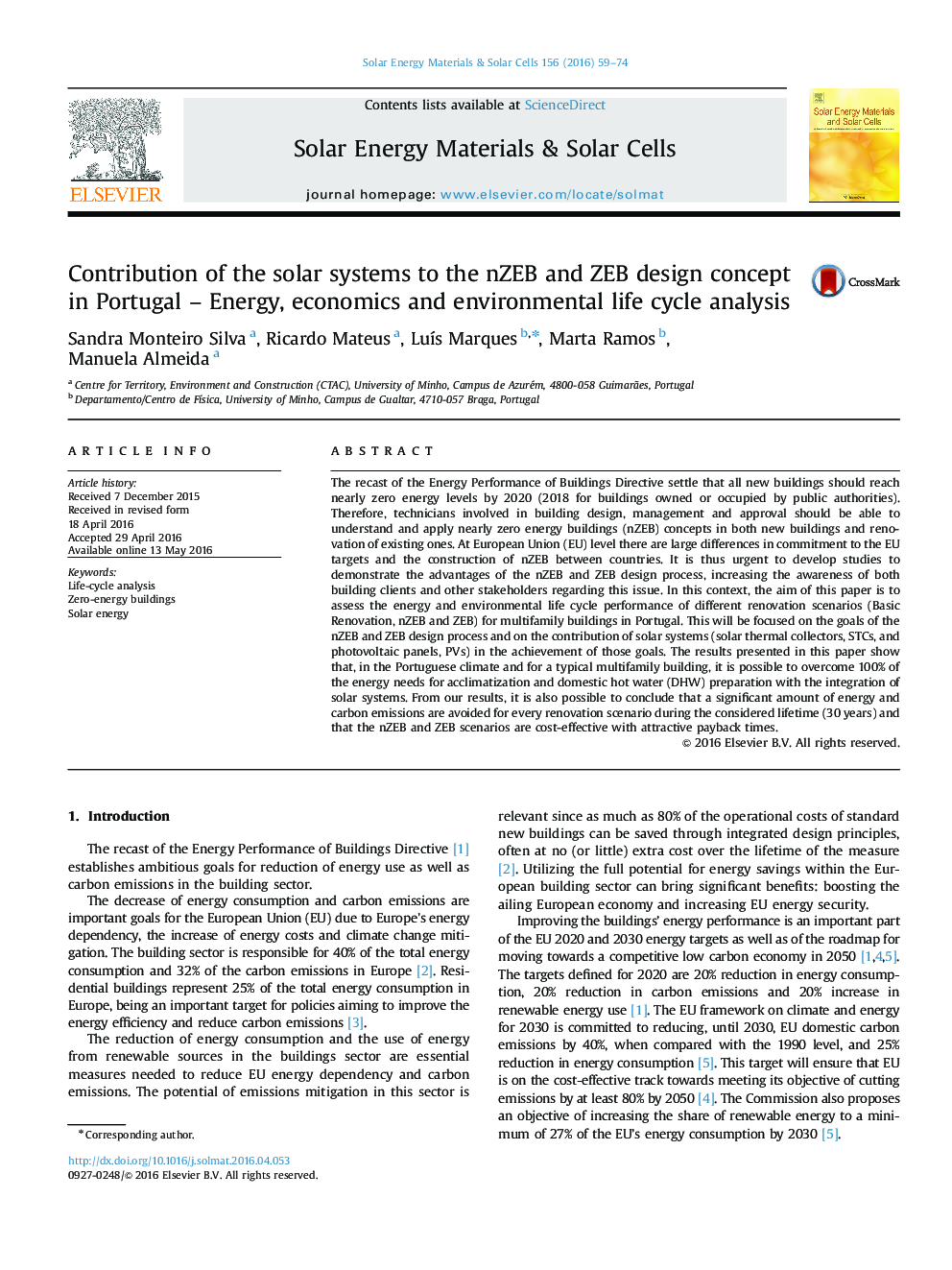| کد مقاله | کد نشریه | سال انتشار | مقاله انگلیسی | نسخه تمام متن |
|---|---|---|---|---|
| 6457658 | 1420666 | 2016 | 16 صفحه PDF | دانلود رایگان |

- Study regarding the implementation of nZEB and ZEB energy levels in Portugal.
- nZEB and ZEB renovations are possible using solar energy systems.
- The economic payback time of nZEB and ZEB renovations is about 15 years.
- The carbon emissions payback time of nZEB and ZEB renovations is about 2 years.
The recast of the Energy Performance of Buildings Directive settle that all new buildings should reach nearly zero energy levels by 2020 (2018 for buildings owned or occupied by public authorities). Therefore, technicians involved in building design, management and approval should be able to understand and apply nearly zero energy buildings (nZEB) concepts in both new buildings and renovation of existing ones. At European Union (EU) level there are large differences in commitment to the EU targets and the construction of nZEB between countries. It is thus urgent to develop studies to demonstrate the advantages of the nZEB and ZEB design process, increasing the awareness of both building clients and other stakeholders regarding this issue. In this context, the aim of this paper is to assess the energy and environmental life cycle performance of different renovation scenarios (Basic Renovation, nZEB and ZEB) for multifamily buildings in Portugal. This will be focused on the goals of the nZEB and ZEB design process and on the contribution of solar systems (solar thermal collectors, STCs, and photovoltaic panels, PVs) in the achievement of those goals. The results presented in this paper show that, in the Portuguese climate and for a typical multifamily building, it is possible to overcome 100% of the energy needs for acclimatization and domestic hot water (DHW) preparation with the integration of solar systems. From our results, it is also possible to conclude that a significant amount of energy and carbon emissions are avoided for every renovation scenario during the considered lifetime (30 years) and that the nZEB and ZEB scenarios are cost-effective with attractive payback times.
Journal: Solar Energy Materials and Solar Cells - Volume 156, November 2016, Pages 59-74